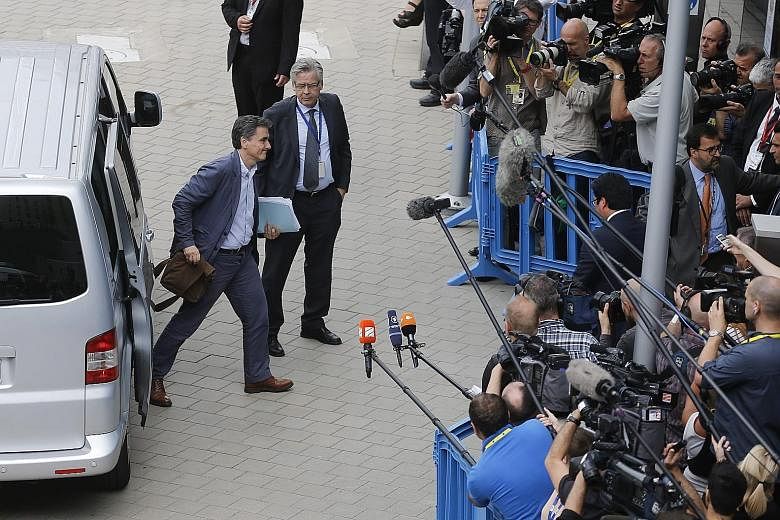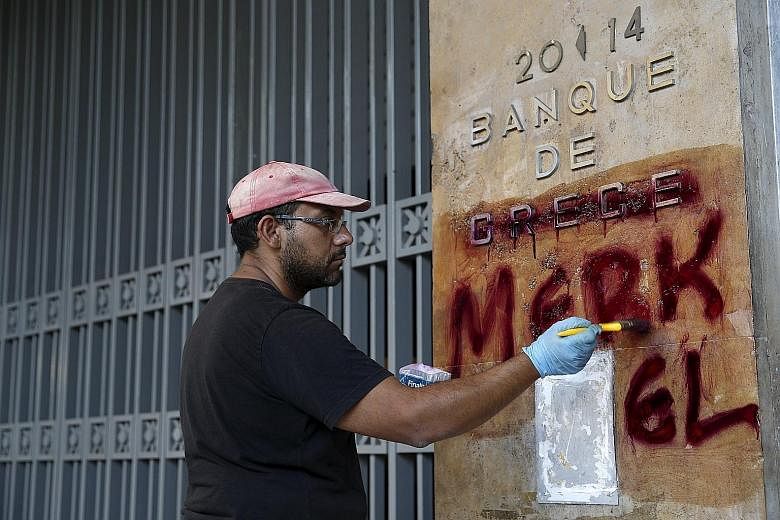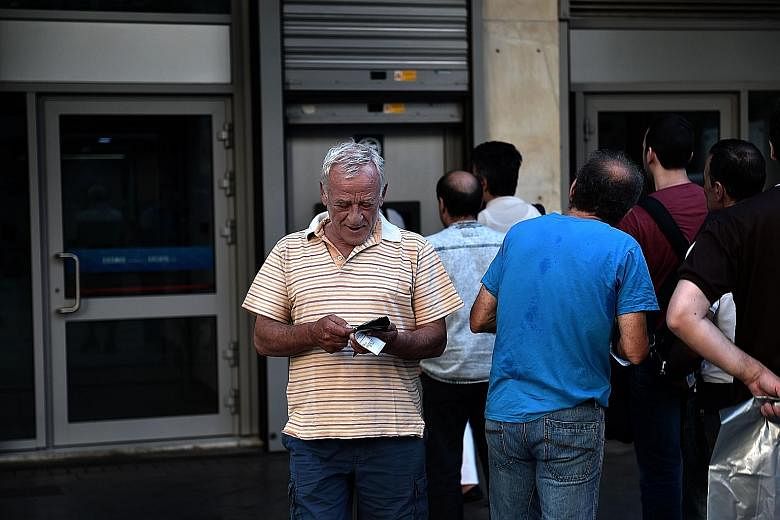Greek Premier Alexis Tsipras will address the European Parliament today, Greek government officials said, amid expectations of new proposals for a bailout deal for his debt-strapped nation.
Euro zone finance ministers held an emergency summit in Brussels yesterday to discuss Greek voters' defiant "No" referendum vote on further austerity measures. The ministers expect Greece to file a formal request for a loan from the European Stability Mechanism soon, officials were reported as saying.
Details of the new proposals are vague but Mr Tsipras' plan is said to include a demand for Greece's massive €323 billion (S$482 billion) debt to be cut by up to 30 per cent.
Without a firmer commitment from European creditors to reschedule its debt burden, which the International Monetary Fund (IMF) has said is unsustainable, Greece is not likely to accept a deal, while Germany has stood firm against unconditional debt relief.
Pressure is mounting on Greece to step up with serious proposals soon as a series of debt payments is due this month including €3.5 billion due on July 20 on bonds held by the European Central Bank (ECB).
Greece missed a €1.6 billion payment to the IMF last week and is unlikely to be able to pay the central bank without financial aid. A missed payment to the ECB would signal that the government is bankrupt.
If a deal is not struck soon, Greece could face even more difficulties paying civil servants and pensioners, who face more pain as banks stay shut for another two days to avoid running out of cash. They were to reopen yesterday but the ECB rejected a Greek request for more funding for the banks.
The ECB on Monday extended just enough of an emergency lifeline to keep them from failing. This has been held at €89 billion since last week in exchange for Greece applying capital controls. But the ECB can withdraw or reduce Emergency Liquidity Assistance (ELA) access since Greece's bailout package expired on June 30.
Tightening the screw, the ECB ordered them to provide more security for existing emergency loans. This is done by applying a bigger discount to assets the banks offer as collateral. The central bank said the move was based on the deteriorating quality of the bank collateral, mostly Greek government bonds.
ABN Amro said: "Even on the previous ELA regime, the Greek banks were projected to run seriously short of liquidity by Friday. So the haircut will bring that even closer."
Associate Professor Christos Sakellariou of Nanyang Technological University's economics division explained the equation.
"Every time the ECB extends liquidity to Greek banks, they give collateral in the form of government bonds they hold, housing loans and other paper. Commercial banks have a given stock of collateral paper. When a haircut is applied, it is valued less. Hence more of it needs to be given for the liquidity extended. So, the banks could run out of collateral faster. Of course coming up with an agreement soon is critical so that the capital controls can be eased somehow," he said.
Should Greece ultimately run out of euros, it could be forced to issue a parallel currency or IOUs to pay its domestic bills, which could bring on an exit from the euro currency.




